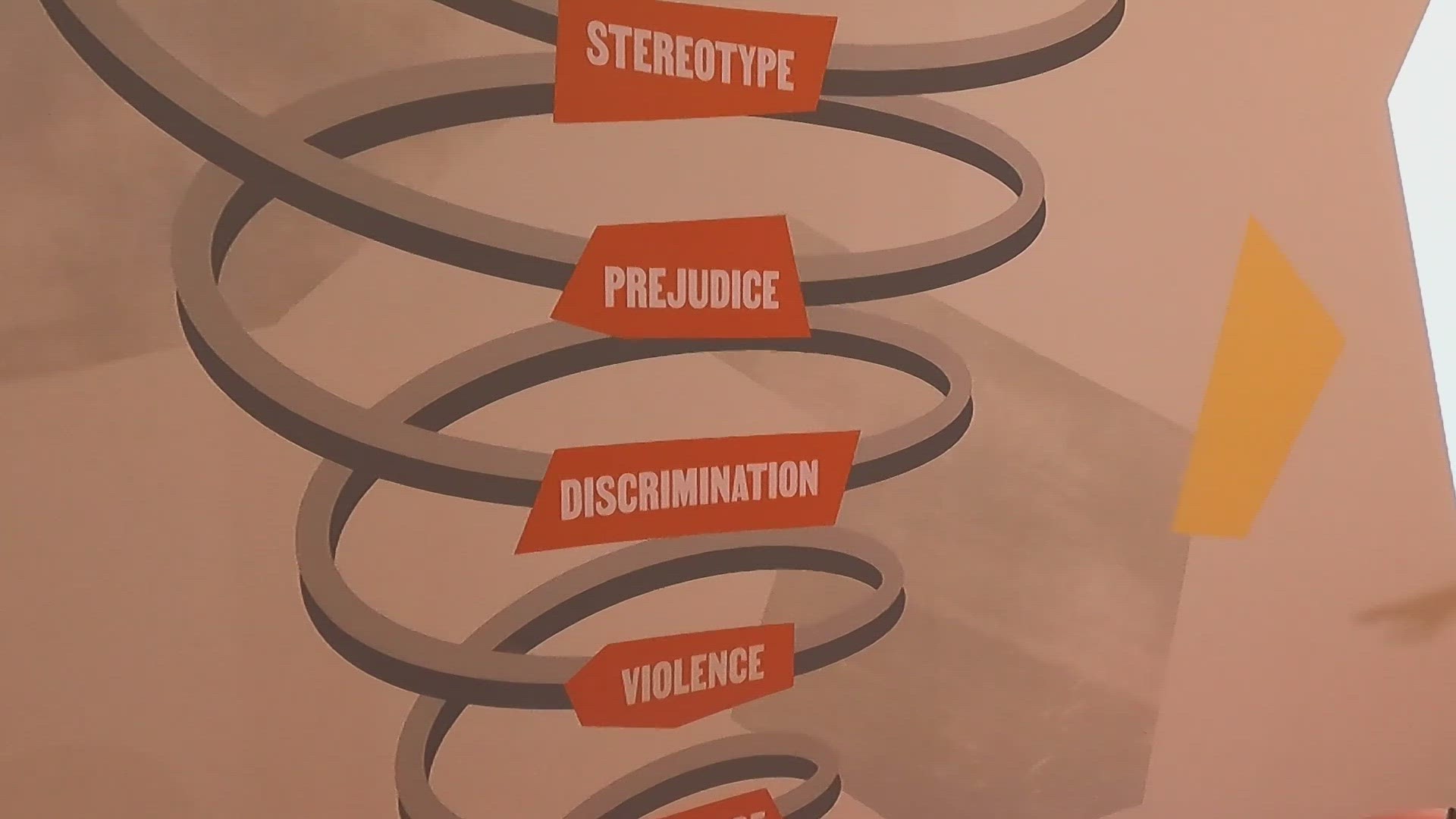ST. LOUIS COUNTY, Mo. — The St. Louis Kaplan Feldman Holocaust Museum is making moves with a brand new addition called the Impact Lab. The Impact Lab is a conversation-based experience separate from the exhibition that uses the Holocaust to promote conversation, activate change and respond to hatred.
According to the Anti-Defamation League (ADL), there was a 100% increase in antisemitic incidents Missouri in 2022 compared to 2021, with a total of 30 reported incidents. Twenty of the incidents reported came from St. Louis City and St. Louis County. The ADL also recorded 3,697 incidents of antisemitism nationwide. This is the highest number of antisemitic incidents the ADL documented since it first started recording in 1979.
The Holocaust Museum's Director of Education, Helen Turner, said these startling numbers are why the Impact Lab is even more important.
“The premise of the Impact Lab is to look at patterns both in external behavior, what societies do and groups of people do, and also our own patterns," Turner said. "How do we respond when we see prejudice, hatred, racism, antisemitism, etc.”
Turner said the Impact Lab was designed to use the Holocaust as a case study and a starting point for conversations. But several other historic and present-day stories of racism, antisemitism, and discrimination are showcased throughout. The Impact Lab is a walkthrough experience with several opportunities to write, read, speak and listen.
“Our goal for it is that it’s the beginning of conversation. It’s a conversation with yourself, to look at some of the prejudices and biases and stereotypes we all have, nobody’s perfect," Turner said.
The Impact Lab is divided into three zones: structures, examples and individual actions and reactions.
“People think about antisemitism, and they might be looking at things they saw in the Holocaust, those are pretty extreme by the time we’re talking about the Holocaust. So, we also want to look at what current antisemitism looks like," Turner said.
Conversations about our past can impact our future, and Turner said that's the very goal of this space.
“It’s also a conversation about community. About the structures that are in place that sometimes keep us divided, or the things we might think about other groups. How do we challenge that and ultimately change that?” she said.
The Impact Lab is now open for groups to book private visits and will open to the general public in July.

